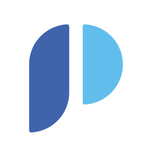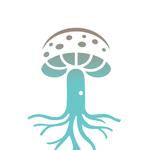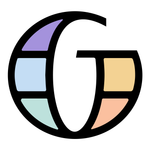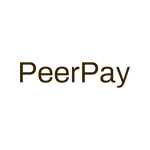We’re ending the week with a message from Interledger Foundation, new weekly office hours, project updates and grant reports, plus upcoming community events.
A message from Interledger Foundation Executive Director Briana Marbury


Interledger Foundation Strengthening its Infrastructure & Increasing Financial Services Providers in the Ecosystem
Chris Lawrence for Interledger Foundation ・ Jun 9 '22
Briana writes…
On May 17, the Interledger Foundation announced its third Call For Proposal (CFP) since launching almost two years ago. For our friends that have been along with us on this journey since the beginning, you'll notice that this Call is quite different from our earlier iterations. When we first started our grantmaking in 2019, our inaugural CFP was open to just about anyone interested in experimenting with the Interledger Protocol. There was a healthy mix of developers and content creators working on projects that ranged from web monetized content, code repositories, and new platforms experimenting with new business models for the web. From our initial cohort of grantees and subsequent calls afterwards, we were able to garner gems for improvement each time. Through our feedback mechanisms imbedded in the grantmaking process, we have been able to determine which aspects of the Protocol our community is excited about, and some of the barriers and pain points to entry that needs to be eased. So we've made the decision to build the foundational aspects and improve the Interledger Protocol to improve access to the network.
Click the link above to read the full blogpost and learn more about this open call.
New Open Call for Proposals Weekly Office Hours Sessions


Join one of the upcoming new ILP Financial Services CFP Info Sessions Hours
Ayesha Ware for Interledger Foundation ・ May 19 '22
We invite you to attend one or more weekly Office Hours Session for the open call for proposals for ILP-based financial services.
Session Dates:
- Friday, June 10, 2022 2:00 pm EDT / 6:00 pm UTC
- Thursday, June 16, 2022 8:00 am EDT / 12:00 pm UTC
- Wednesday, June 22, 2022 9:00 pm EDT / 1:00 UTC
- Tuesday, July 5, 2022 3:00 pm EDT / 7:00 pm UTC
Register for a session here.
We are also answering questions on our Interledger Slackso be sure to join!
Updates & Questions
Sophie of Prototypr shares why paywalls are a hinderance on the web


Irrelevant Search: How Results are Ruined by Paywalls
sophie for Prototypr ・ Jun 6 '22
When things went digital, so did reading. Kindles and Kobos could be spotted replacing newspapers on train commutes, and iPads made digital paper feel glossier than a magazine.
Instead of print, we began reading and subscribing to publications through Apple Books, or bought one-off issues of The Telegraph through the Kindle Store - maybe that's what normalised buying digital newspapers.
It's not just the Kindle Store acting as a premium news stand, but also Search Engines like Google
These mediums were a natural progression from paper, and more importantly, their marketplace counterparts became an extra magazine stand and newsagent. Apple, Amazon, Kobo, and a handful of other digital book stores became a new set of new shelves, and a primary distributor for digital content - that is until paywalls on the web.
Head over to to read Sophie's full post and leave your comments and suggestions!
Grant Reports
Ian Davis for Mysilio write about working with a partner to develop a a single web-monetized site for citizens, academics, policy makers, and activists in Grant Report 1


Limen / Mysilio — Grant Report #1
Ian Davis for Mysilio ・ Jun 1 '22
Project Update
For our second grant, the Mysilio team has been working with Dr. Antara Haldar to create Limen, a digital knowledge commons combining research across disciplines into a single web-monetized site for citizens, academics, policy makers, and activists. The goals of Limen are to provide both an interdisciplinary public knowledge base of cutting edge policy research, as well as a test bed for economists and technologists to experiment with new passive monetization strategies like Web Monetization. Over the last few months, we’ve been hard at work on the initial design, discovery, and strategy work with Dr. Haldar to determine how Limen site will function, what initial data to publish, and who will serve as the initial contributors to the site. We hope this model may eventually provide an open alternative to paywalled providers like LexisNexis and the current academic publishing ecosystem.
The site we’ve designed will consist of a community of three key stakeholder classes: Editors, Researchers, and Contributors.
- Editors refer to professors and other senior academics who already have strong academic reputations, and perhaps their own datasets, papers, and knowledge to publish. They will be charged with curating the knowledge commons, and deciding which contributions to feature.
- Researchers refer to graduate students and other researchers who will help curate and discuss research. They will form the bulk of the social participants of the platform, and will be the primary participants in the many of the monetization experiments we hope to run.
- Contributors refer to non-academics who will be able to take a variety of qualitative quizzes and assessments, and have their responses recorded in shared datasets managed by the Limen project. This will allow Editors and Researchers to solicit input from the general public in an academically rigorous manner.
Nestor Campos for PeerPay shares feedback, learnings and challenges in Grant Report 1
Project Update
PeerPay ("Payment system for one billion people") already has its first Web version (https://peerpayapp.com/), available for any user to try. Not only is this its first version, but it also includes a lot of feedback that the tremendous Interledger community and Grant for the Web have given us.
We are in the middle of the project, with a lot of learning, with many challenges ahead and with tremendous opportunities that we are working on.
Progress on objectives
The proposed objectives for this year in PeerPay are:
- Web development as MVP: It is ready and functional with test accounts (ILP accounts). Accessible at https://peerpayapp.com/
- Localization: Thanks to the feedback from the community, we realized the importance that PeerPay was not only in Spanish, so it can also be used in English and Portuguese.
- API development: The architecture is ready and the team is working on refining the last details to publish the API and allow the development of new products for builders.
- Communication and marketing strategy: We developed a strategic plan that includes alliances with other protocols and blockchain to participate in PeerPay. It also includes financial entities (which we are now going to talk to some of them taking advantage of the ready MVP) and exposure of PeerPay to entrepreneurs to test the functionalities and understand how they are used to adjust the platform.
Please take a few minutes to go read both Ian and Nestor's full reports by clicking the links above.
Community Events
Join our upcoming Community Call hosted by GftW awardee Andrey Torresof project PipeWebMonetization on June 23, 2022 at 4:00 pm EDT / 8:00 pm GMT-3


Join us for the June Community Call hosted by GftW awardee Andrey Torres
Ayesha Ware for Grant for the Web ・ Jun 9 '22
Andrey and guest speakers Gabriel Eiji and Danilo Mirandawill will lead a conversation about Web monetization into the WordPress ecosystem.
Have you ever tried to use the web monetization technology in your WordPress website? Was it hard for you? Come here to talk and learn about the utilization of the web monetization technology into the WordPress ecosystem.
Andrey’s project, PipeWebMonetization , will facilitate the insertion of Web Monetization in the development of websites by leveraging WordPress, creating the possibility of users to leverage their existing businesses and websites by adding a possible new form of income through Web Monetization. The project will be successful when WordPress users, be they power users or not, can easily implement Web Monetization in their businesses.
To register go to: https://www.eventbrite.ca/e/359607615057
Upcoming Gradual Sessions
On Tuesday, June 21st, 2022 at 4-5 PM CET will facilitate a session:Web Monetization earning with tutorials on gFam Learn Adam Waring of gFam.live


Gradual update and upcoming sessions!
Gunnar de Jong for Gradual ・ Jun 3 '22
gFam.live aims to introduce new storytellers into the web monetization community with its social media posts, and now new functionality called gFam Learn will attempt to enable teachers to earn directly from students via web monetization and/or tips.
Adam Waring will present the gFam Learn functionality and answer any questions you might have on the processes or technology. As far as we're aware there is no capacity or platform online for teachers to earn per lesson or for students to unlock and pay for just the lessons they're interested in. With gFam Learn, lessons can be visible to everyone and tips/microtransactions are provided as a bonus or lessons can be gated and unlocked by either Coil Subscribers or by a specified amount of XRP via the XUMM wallet.
REGISTER HERE to attend this session
If you have an idea for a skillshare with the community or a session in any format you can now also propose them directly from the community page.
Tessel for project [MicroMemberships] share new details of upcoming event
Article No Longer Available
During this evening (Thursday 23 June) we will be investigating new online revenue models for creative makers.
Read about the event in Dutch.
This event is part of the MicroMemberships project.
Stay tuned for more details on the Interledger Foundation's current call for proposals and upcoming opportunities to participate in community events.
Header Image by Skitterphoto from Pixabay






Top comments (1)